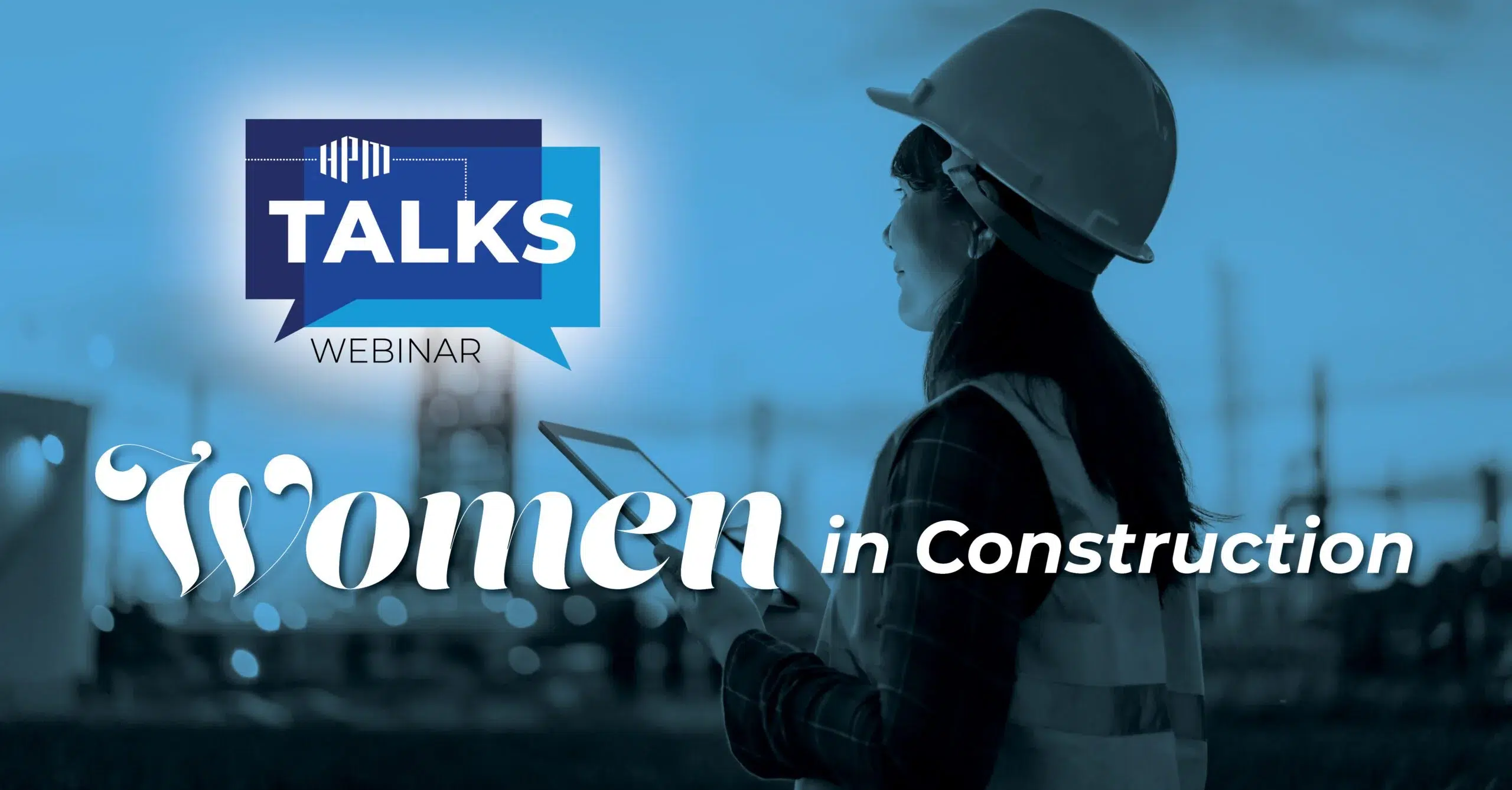
Blog | Project/Program Management
HPM Talks Webinar: Women in Construction
March 4, 2021

To coincide with Women in Construction Week, HPM Talks brings together a panel of HPM women leaders to discuss why they pursued careers in the industry, and the successes and challenges they have experienced along the way. The panel will explore the power of mentorships, managing work/life balance, and why having a seat at the table as a woman matters now more than ever.
Panelists:

Questions & Answers from the Webinar
Q:
Hi! I am extremely interested in breaking into the construction field as an APM (to grow into a PM role). My skill set is not quite what a construction company would be looking for. Do you have any suggestions to help grow the correct skill set?
A:
- – Medora Gaddes, HPM Project Manager and Talent Development Coordinator: Experience! You likely have the foundational skill set to work in the construction industry so don’t sell yourself short. Qualities like drive, ability to learn and take initiative, communication skills, time management, and attention to detail are the skills the construction industry is looking for. You likely simply need to gain the construction knowledge, and that is something you can gain with experience. All you need is to find that first opportunity and build from there – like a lot of us who are in the field now have done! I would be happy to have a follow-up call to discuss and answer any questions you might have. Send me an email to connect at mgaddes@hpmleadership.com.
- – Mary Kathryn Holt, HPM Project Manager: Without knowing your skill set or background, I’m not convinced that you do not already have some qualities that would make you a successful candidate for an APM position. Nevertheless, I would suggest investing your resources, whether that be time or money, into growing some marketable skills that would qualify you for an entry level position. Find a job description for an entry level position and use it almost as a checklist. If there are technical skills required (i.e. BIM or scheduling software) take a class to begin learning. Also, join a professional organization and attend meetings to get exposed to the industry and other professionals. All of this can be done with a minimal financial investment. Lastly, apply for some jobs. Interviewing is a great way to learn more about your strengths and weakness as they relate to the job you want.

